We are delighted to announce that wellbeing leader, Jonathan Phelan will be speaking at ESG World Forum next month.
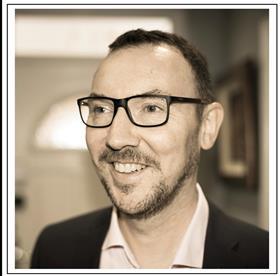
Taking place on June 7 and 8 at Park Plaza, Westminster Bridge, London, ESG World Forum sponsored by OneTrust brings together global subject matter experts and thought leaders from multiple industries to debate evolving ESG strategy.
The two-day, in-person event sits within the Digital Trust Europe Series, giving professionals a fast-track to the heart of the issues defining the ESG landscape post-COP26.
Exclusively at ESG World Forum, Jonathan Phelan will bring his expertise to conversation on Diversity, Equity, Inclusion, and Antiracism (DEIA) in the workplace.
A champion of people-first business culture
Jonathan is part of the senior leadership team at the Financial Conduct Authority, with responsibility for supervising the conduct of over 30,000 firms involved in lending money to retail consumers. Alongside this role, Jonathan also founded and now runs a philanthropic venture called Evenhood, which is focused on organisational culture.
Through Evenhood Jonathan provides talks, training and coaching in workplaces, universities and schools. Jonathan promotes the benefits of a culture of evenhood, where people are encouraged to be themselves and they feel valued for who they are. This culture of evenhood supports positive wellbeing, strengthened resilience and a sense of inclusion for all.
We spoke with Jonathan to about his career to date, and for more insight on what makes up a successful DEIA strategy in 2022.
Could you outline your career pathway so far?
I started my career as a lawyer working in the challenging world of finance and banking litigation. Over time I moved into financial services regulation and have enjoyed a long and successful career leading various operations for the Financial Conduct Authority. With a career focused on making the world of financial services a better place for consumers, I have always had an interest in working for the public good.
Just over ten years ago I experienced a life-changing event with the death of a child. That experience shone a light on how difficult it can be for people to ‘fit in’ to a corporate or organisational culture when they are different. In my case that difference was one of mental wellbeing. For others, it might be differences due to race, religion, physical disability, gender, sexuality or differences of personality, differences in preferred ways of working, living or being.
Such a life-changing event produced a desire in me to find my Holy Grail – which is how we can create a culture in which people feel able to be themselves, rather than obliged to mask aspects of their true selves so that they can fit in.
I call this a culture of ‘evenhood’ which is one where there is trust, mutual respect, kindness, compassion and humanity. People are encouraged to be themselves and valued for who they are. By being themselves, they can perform and be effective and give value to the organisation they work in. A culture of evenhood therefore benefits both the individual and the organisation.
I now enjoy speaking, training and coaching in workplaces, universities and schools on this subject. As a story-teller, I take delight in sharing stories about ‘Resilient Trevor’, the ‘Tardigrade’, ‘The Fool and The Fisher King’, ‘Bob’s Plate of Cakes and Your Four Brains’, ‘Amy’s Journey to Resilience’, ‘Humpty Dumpty’ and the ‘Allegory of the Spoons’. These stories all contribute to encouraging audiences to discover the benefits of a culture of evenhood.
How important is DEIA within overall business strategy?
The way I look at the world of work is this: at its highest level organisations have a purpose (“why we do what we do”); a strategy (“what we do and how we do it”), and a culture (“the way we do things around here”). If any of these are missing, broken or weak, then the organisation is dysfunctional and will struggle to succeed.
Culture is about “the way we do things around here”. In my experience, most cultures require people to ‘fit in’ to the way things are done. We see this all the time when people interview for a new job – they may dress in a particular way, answer questions in a particular way, give particular examples to illustrate their answers.
All this is done to demonstrate that they will ‘fit in’ to the organisation. The interviewers will often discuss, after the interview, whether the candidate is a good fit. When we start a new role, we look around at the way things are done around here and we try to fit in to the way people dress, act, behave and operate. All this ‘fitting in’ takes effort. We might mask our true selves; sometimes significant aspects of our true selves, in order to fit in. This can have a negative impact on how included we feel, as well as how resilient we feel.
To my mind this drive to have a culture where people have to ‘fit in’ is restrictive of diversity, equality, inclusion and access. My work in this area is therefore not focused on DEIA initiatives. While initiatives are good and wholesome and support positive DEIA; I prefer to shine a light on the cultural benefits of seeing an individual as an individual, encouraging them to be themselves and valuing them as they are.
If the individual can add value to the organisation by being themselves then the organisation benefits and the individual feels valued, trusted, included and resilient – because they are being allowed to be themselves and they are able to be the best that they can be.
Are there common challenges that businesses face as they bid to improve approaches to DEIA?
One of the biggest challenges I am seeing at the moment is the misplaced belief that it is initiatives (events, staff groups, quotas, inspirational talks and so on) that will solve this problem. While these will indeed help; they can also make things worse if people see others in the organisation behaving in a different way that is inconsistent with positive DEIA outcomes.
Behaviour is cultural; so, the biggest challenge is to get DEIA embedded culturally in organisations. Once we make it so that ‘the way we do things around here’ is that we allow our colleagues to be themselves and we value them for who they are, then we have a culture that will work for DEIA.
What are the key organisational factors that should underpin a successful DEIA strategy?
By all means continue with the initiatives to promote diversity, equality, inclusion and access. Do remember though that initiatives on their own will not fix this problem. Indeed, initiatives can do more harm than good if people within the organisation behave in a way that is inconsistent and contradictory.
The initiatives are fine; but the three biggest things that should underpin a successful DEIA strategy are these: culture, culture and culture!
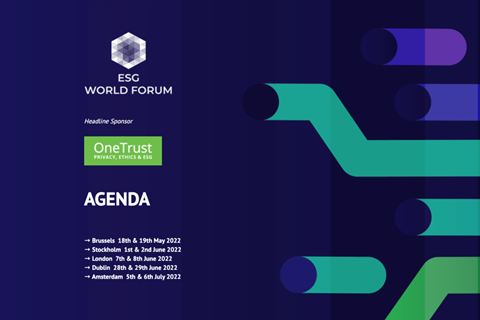
Also on the panel:
- Cheryl Cole, Editor of DiversityQ
- Elise Sabran, UK Head of Governance, Culture & Conduct, Societe Generale
- Peter Alleyene, Associate Director for Diversity, Equity, Inclusion and Race Equality, Rethink Mental Illness
Session time: 11:20-12:05 BST
Date: Wednesday June 8, 2022
Venue: Park Plaza Westminster Bridge, London
ESG World Forum is also available on-demand for global viewing


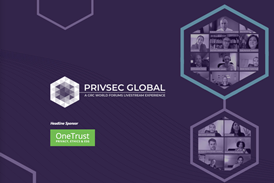
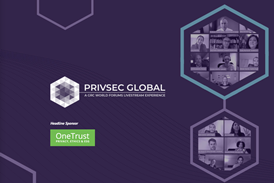
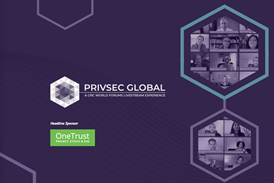





No comments yet